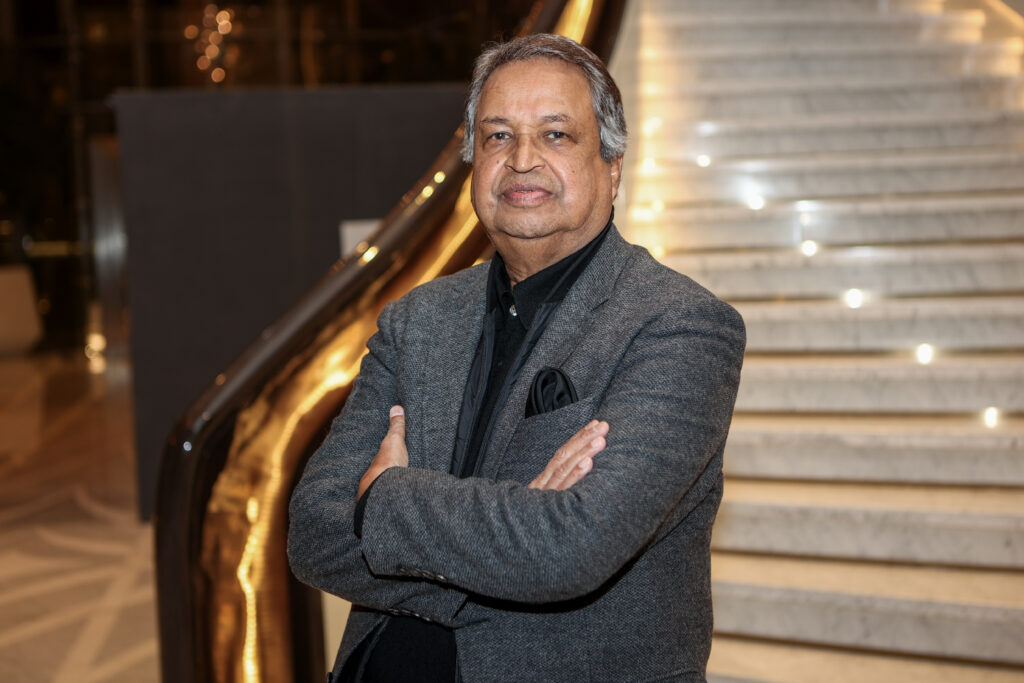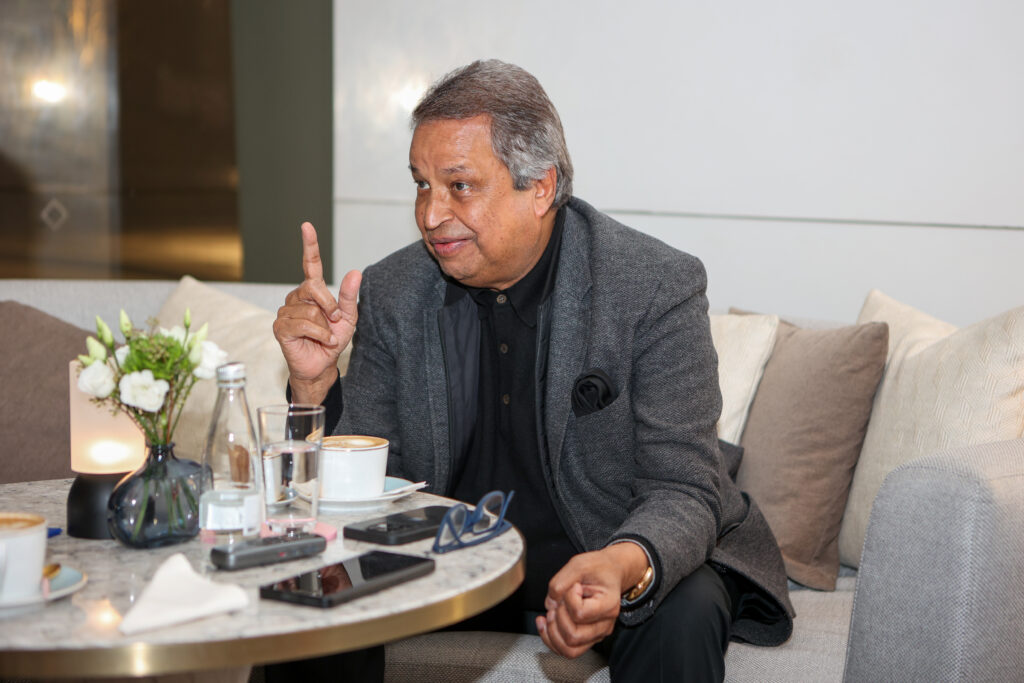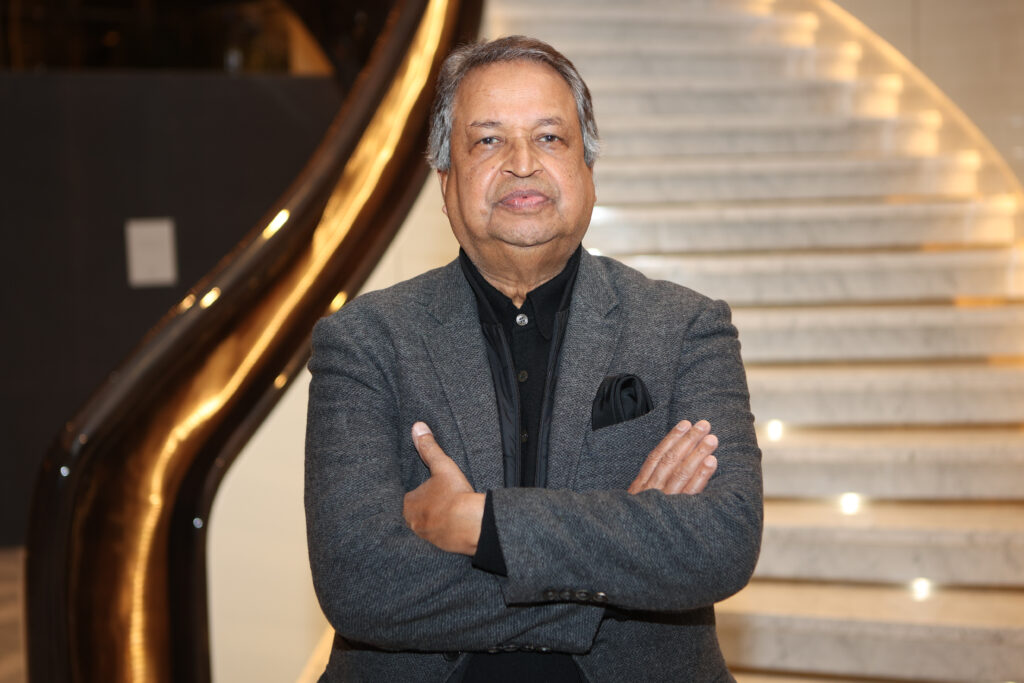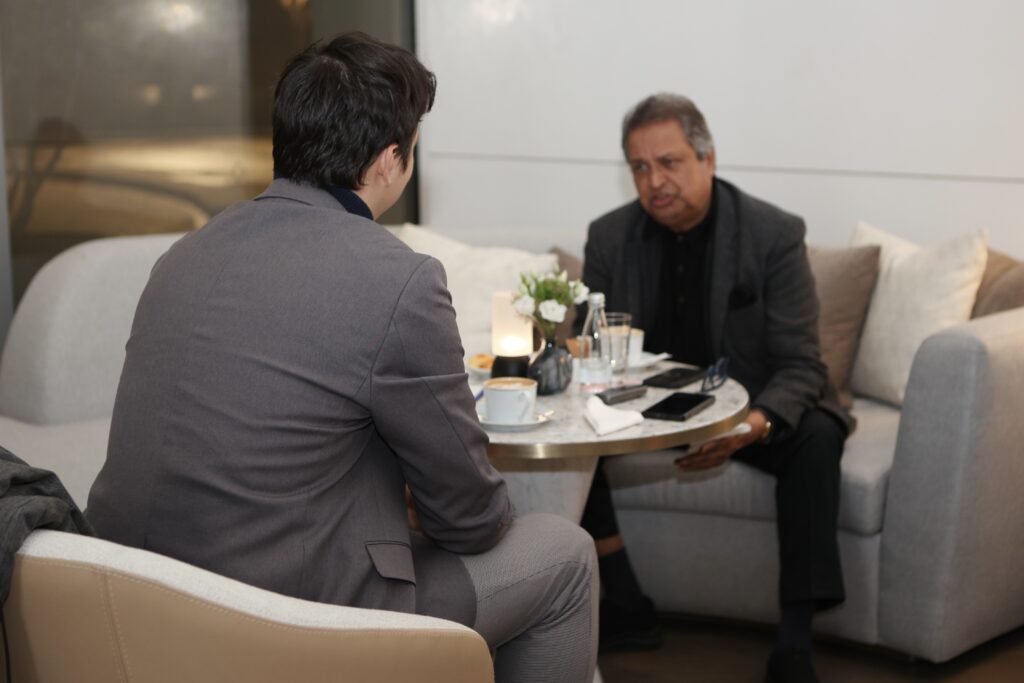A story of success – from a family business to a global leader
 Binod Chaudhary is a Nepalese billionaire businessman and philanthropist. He is the chairman and president of the Chaudhary Group. In February 2013, he was recognised as Nepal’s wealthiest and only billionaire. In an interview for our magazine, we talked to him about his origin story, the success of the Chaudhary Group, and his message for the new generations of entrepreneurs.
Binod Chaudhary is a Nepalese billionaire businessman and philanthropist. He is the chairman and president of the Chaudhary Group. In February 2013, he was recognised as Nepal’s wealthiest and only billionaire. In an interview for our magazine, we talked to him about his origin story, the success of the Chaudhary Group, and his message for the new generations of entrepreneurs.
Can you share the story of how you started your journey in the business world and what inspired you to take over the family business?
Well, I must say that if I look back on my life, and there is a book on it, it’s also in Serbian. It’s a book called Making It Big. You can get it on Amazon and online. I had to join the business at the age of 18. Not that I was planning. Like all of you, I was busy running a discotheque. I was preparing to go to India, Mumbai, and Bollywood and, like everybody else, enjoy life for a few more years. Still, my father fell ill, unfortunately, and I was the eldest son of the family. So, I had no choice; my sense of responsibility prompted me to take over.
People did not believe that a young man could be serious about business, so there were many challenges, and many people tried to take advantage of them. There were struggles from day one.
Second, I can also say that I’ve always been a man from a small country but a man with big dreams. I always thought that I wanted to be what I am today. I never had any complexes. Fifty years ago, it was easier said than done. I’m happy that wisdom prevailed. God showed us the path, and we kept on working. Our nation grew.
First, we became the biggest in Nepal. Then, we grew in South Asia, India, Bangladesh, Bhutan, and Sri Lanka. The next journey was the Middle East, and now we’re trying to position ourselves as a reasonable conglomerate in the European markets, particularly ex-Yugoslavia.
So, our plan is to cover the whole region, not just Serbia, but with Belgrade as our headquarters. That’s the centre. We’ve been here for about seven years. We produced the instant noodles WAIWAI.
We have kept it low-key so far, but otherwise, we are a much bigger brand in Asia. We will focus on this region and grow not only our existing plants but probably new plants. We are already setting up another plant in Egypt. We will be a formidable player.
 What are some of the key factors that have contributed to the success of the Chaudhary Group over the years?
What are some of the key factors that have contributed to the success of the Chaudhary Group over the years?
Number one is having confidence in yourself. Number two is having the determination that you will make it. Number three is being disciplined, and you’ll ensure that whatever you plan, you execute it. People often talk about vision. Everybody has a vision, but do you have an execution plan for that vision? They say a vision without an execution plan and a will to execute is a joke.
All these factors that I mentioned contributed to having big dreams. You have to dream in life. If you start thinking and complaining, “I don’t have this, I don’t have that. I come from a small country”, it’s just a lot of excuses.
You have to remember, and I can say this from my own experience, that nothing stops you from competing with anybody from anywhere else in the world, especially now. The world is so connected.
Whether you were born here, in Nepal, in the USA, or anywhere in the world, the technology is the same. So, the issues stay the same wherever you are. It’s a connected world, and there are resources.
The backbone of all these businesses is not capital. It is the mind.
While we’re on success stories, could you share details about the Chaudhary Group’s flagship projects and their impact on the market?
I want to divide this answer into probably three different fields.
One is historically what business we were in. We have always been in the food and beverages business and have become a global player. Our products are sold in more than 70 countries. We have 27 plants across the world, including Sevilla. Subsequently, we went into the hospitality industry. It was about 25 years ago, and today, we have about 170 hotels across 12 countries and growing. We work with Taj, Pemmon, and Marriott, to name a few, and we have our brand.
The third sector that has become important to us is banking and telecom. We are in Nepal, Moldova, not too far from you, in telecom. In banking, we are in Nepal, Sri Lanka, and hopefully soon in the Balkans, too. Now, that’s one aspect.
The other aspect that gives us great satisfaction and worldwide recognition is our work through our foundations. Earning money and having recognisable brands is important, but giving money back to the people is equally important.
Today, everybody knows who is behind a particular corporate name or a brand and what the conduct of that shareholder is. If that shareholder plays some role in a positive social change, the consumer and the people will have an emotional connection. That reward you will get as a corporation will be far more precious than any other dividend. We have always played by this rule, be it the earthquake in Nepal, one of the third largest in history in 2015, COVID-19, or every other day.
I respect Warren Buffet and Bill Gates, not for their money, but for the work they do for society. I respect Tata’s in India, too, because of the work they do. So, in our small way, we have been recognised. We have been featured on the cover of Forbes for the social work we’ve done, not because we are the biggest enterprise in the world but precisely because of our impact.
 Could you share how the Chaudhary Group ensures quality and consistency across its product lines?
Could you share how the Chaudhary Group ensures quality and consistency across its product lines?
It’s like most conglomerates have to follow the same principles. You have a very strong core, your corporate support system, and your vertical-wise management team. This management team is very carefully monitored and supported. Let’s say my hotel team is based out of Dubai; whether there is a hotel in Slovenia or a hotel in New York at JFK, the same team is watching it. So they’re learning how different brands operate, what standards we need to follow, what products we offer.
Our global team, which runs all our food and beverage businesses, is involved in Serbia, Egypt, Kazakhstan, India, and Nepal. So, it’s a question of consistency in the people who run the business and find the best people.
Educating them so they become the best people in the industry and ensuring that you look after them while maintaining the corporate structure is hard enough.
During my journey over the last 50 years, the most difficult thing in getting to this point wasn’t business-building or capital. It was always about people—finding the right person for the right job and making sure that the right person you delegate delivers.
 What advice would you give to young entrepreneurs worldwide who aspire to build successful businesses?
What advice would you give to young entrepreneurs worldwide who aspire to build successful businesses?
There could not be a better time for your generation to be born. Why? Because the whole world is going through a disruption. New thoughts, old ways of doing things, old technologies and business methods are all becoming irrelevant.
In our time, 50 years ago, if I wanted to introduce something in the market, I would have to set up a plan. Today, you don’t even need a plan. Just an idea is sometimes enough. Just an idea, you can get it made by somebody.
Amazon does not own any factory. Alibaba doesn’t own any factories. The world’s biggest hotel company, AirBnB, doesn’t own even one single room. Uber doesn’t own a car. It’s only about the idea that somebody had of buying out that space, be it in the car or a hotel building, and selling it to somebody who needs it. It’s connecting people, and technology plays the most important role in connecting people. And technology is the same. Whether you do it from Kathmandu or Silicon Valley. What is also important is that you have to be able to foresee trends and where the world is going.
People often talk about vision. Everybody has a vision, but do you have an execution plan for that vision?
For instance, if Blackberry had realised that the age of Android would end, it would not have missed the market. So, this is what is called a disruption. Every day, thousands of disruptive businesses occur, and the backbone of all these businesses is not capital. It is the mind.
It is the human, the commitment and the discipline to convert that idea into a reality. Capital isn’t everything. Most of the globally well-known companies, call it Amazon or Microsoft or Google or you know, you look at the background of their founders; they do not come from rich big families like Rockefeller.
They all are first-time entrepreneurs. They had an idea, a will, and the ability to put together an ecosystem. They could sell their ideas. If you can convince people that you have an idea that is going to be a winner, if you can convince them that this man has the courage and discipline, money will just follow you.